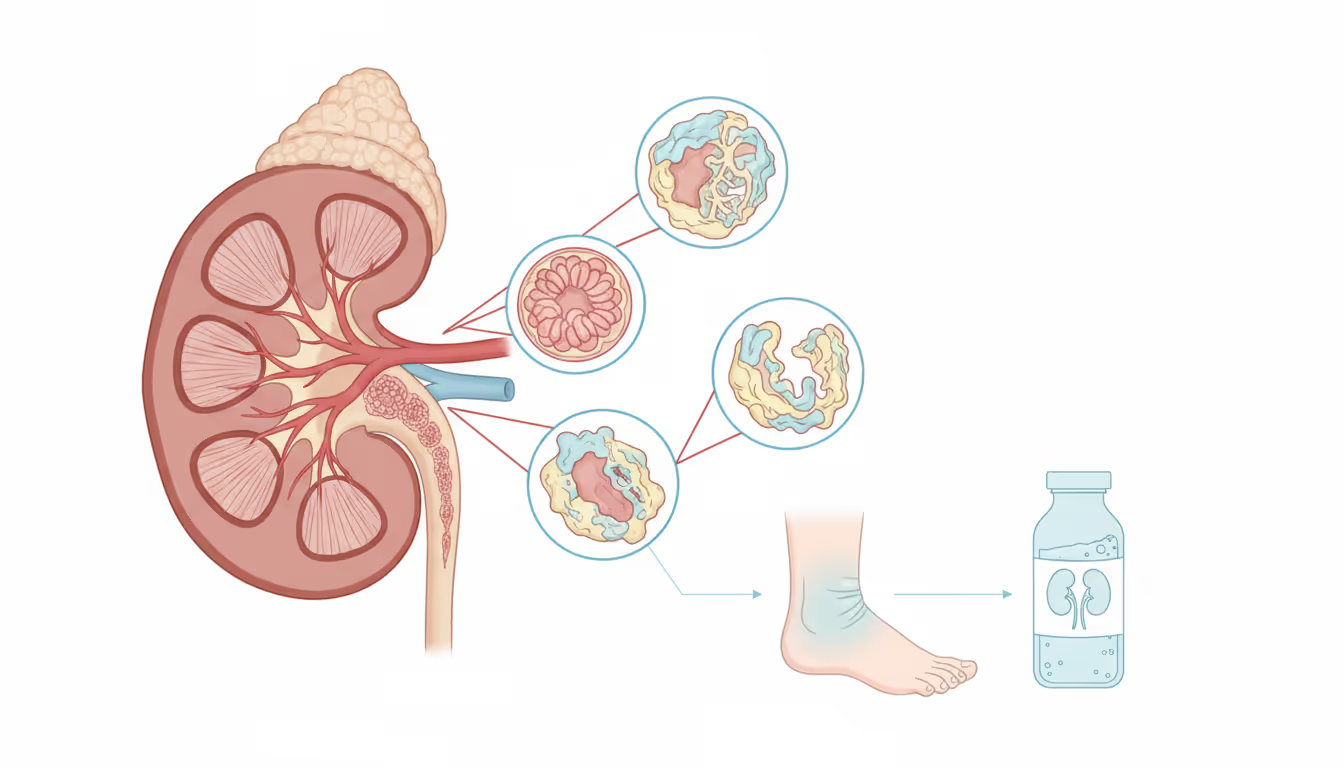
Chronic glomerulonephritis refers to a category of kidney disorders marked by persistent inflammation and scarring of the glomeruli, the tiny structures in the kidneys responsible for filtering blood and generating urine. This type of kidney disease often progresses gradually over many years and may initially present without noticeable symptoms. Once symptoms do emerge, they generally include fatigue, swelling (edema), foamy urine due to protein presence, and increased urination at night. Various medical conditions can lead to chronic glomerulonephritis, including genetic disorders and immune system diseases, though often the precise cause remains unknown. In some instances, the disease can advance to kidney failure. Conditions such as diabetes and hypertension are commonly associated with glomerular scarring and diminished kidney function. There is no specific cure currently available. Patients may be advised to limit their intake of protein, manage high blood pressure, reduce salt consumption, and take calcium supplements. Diuretics might be necessary to address swelling.




